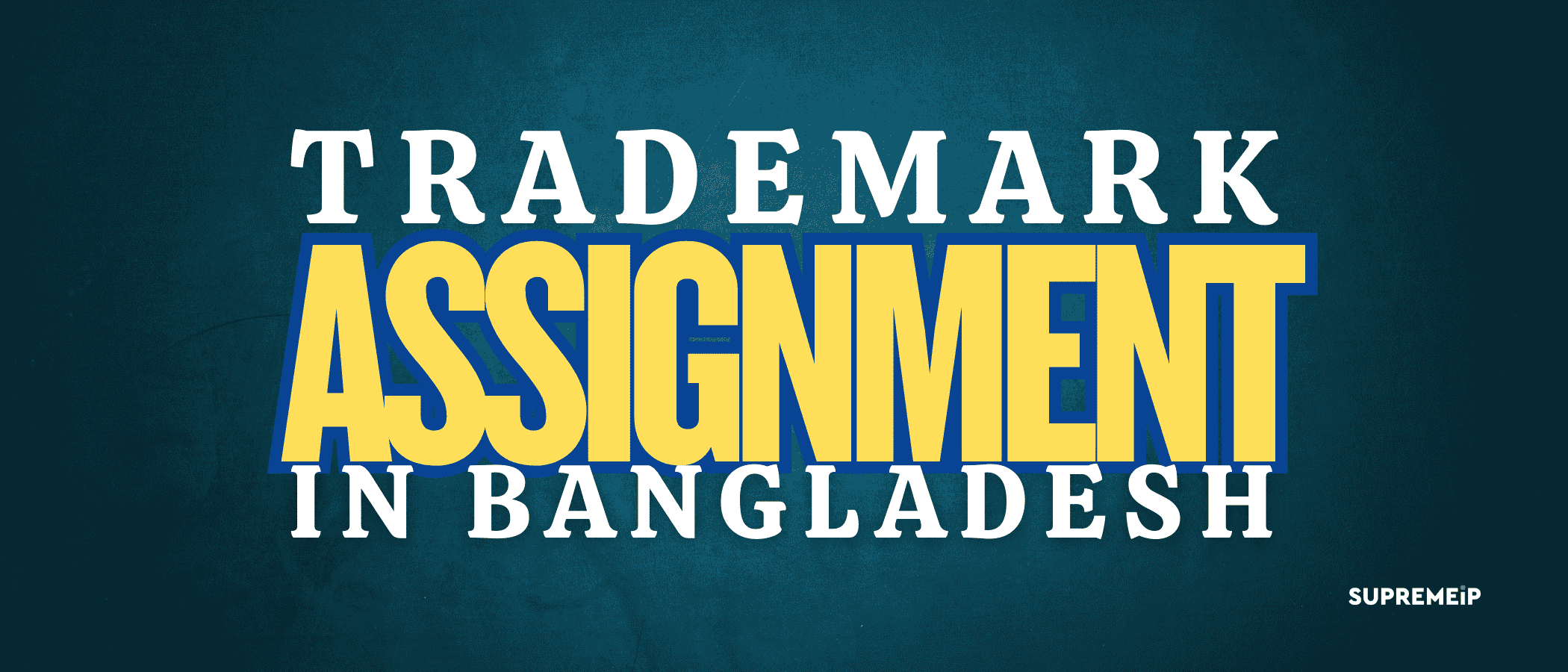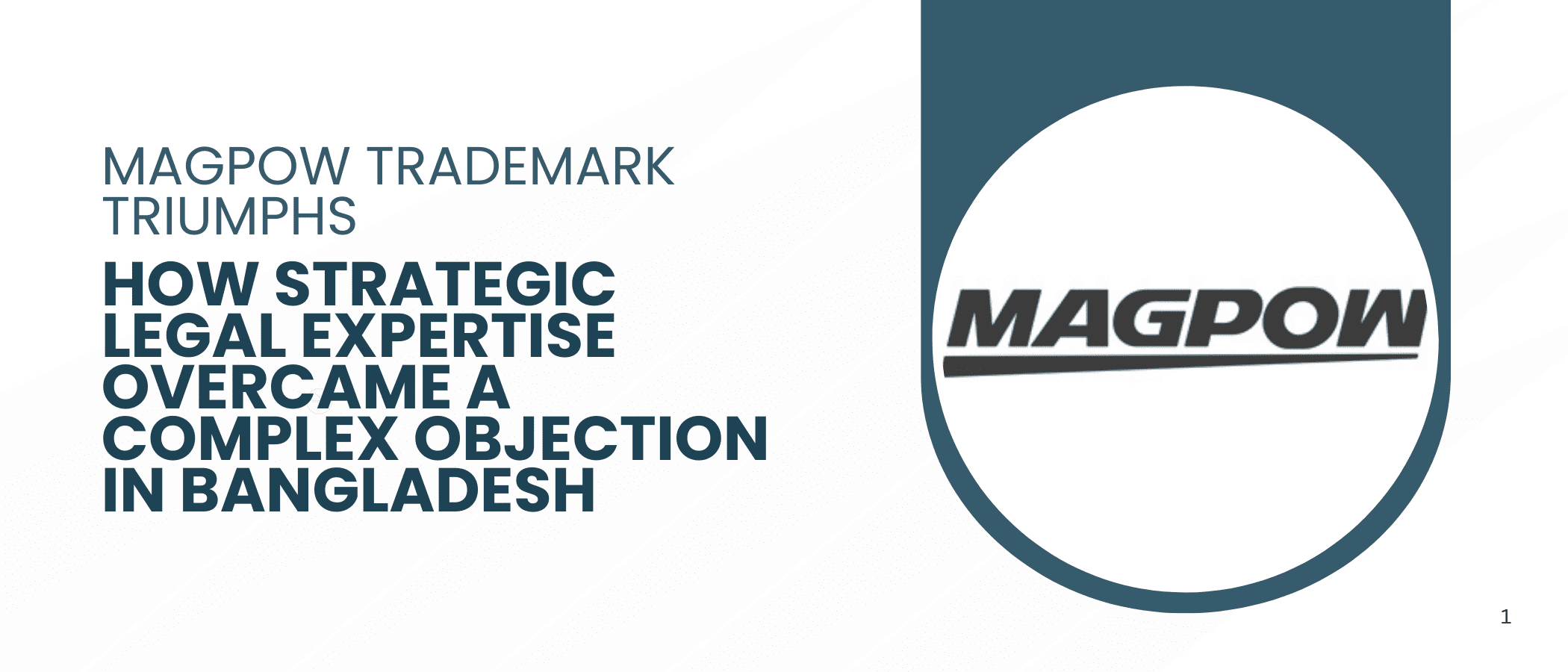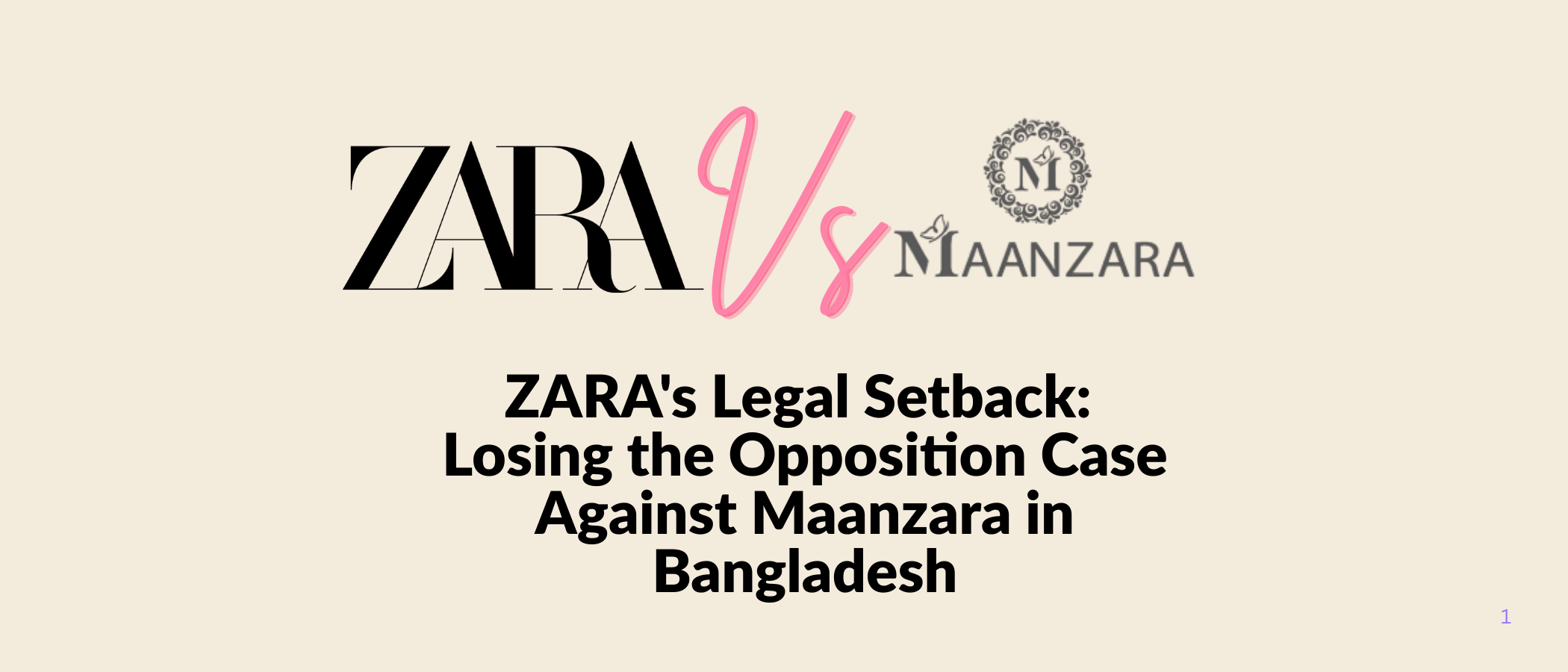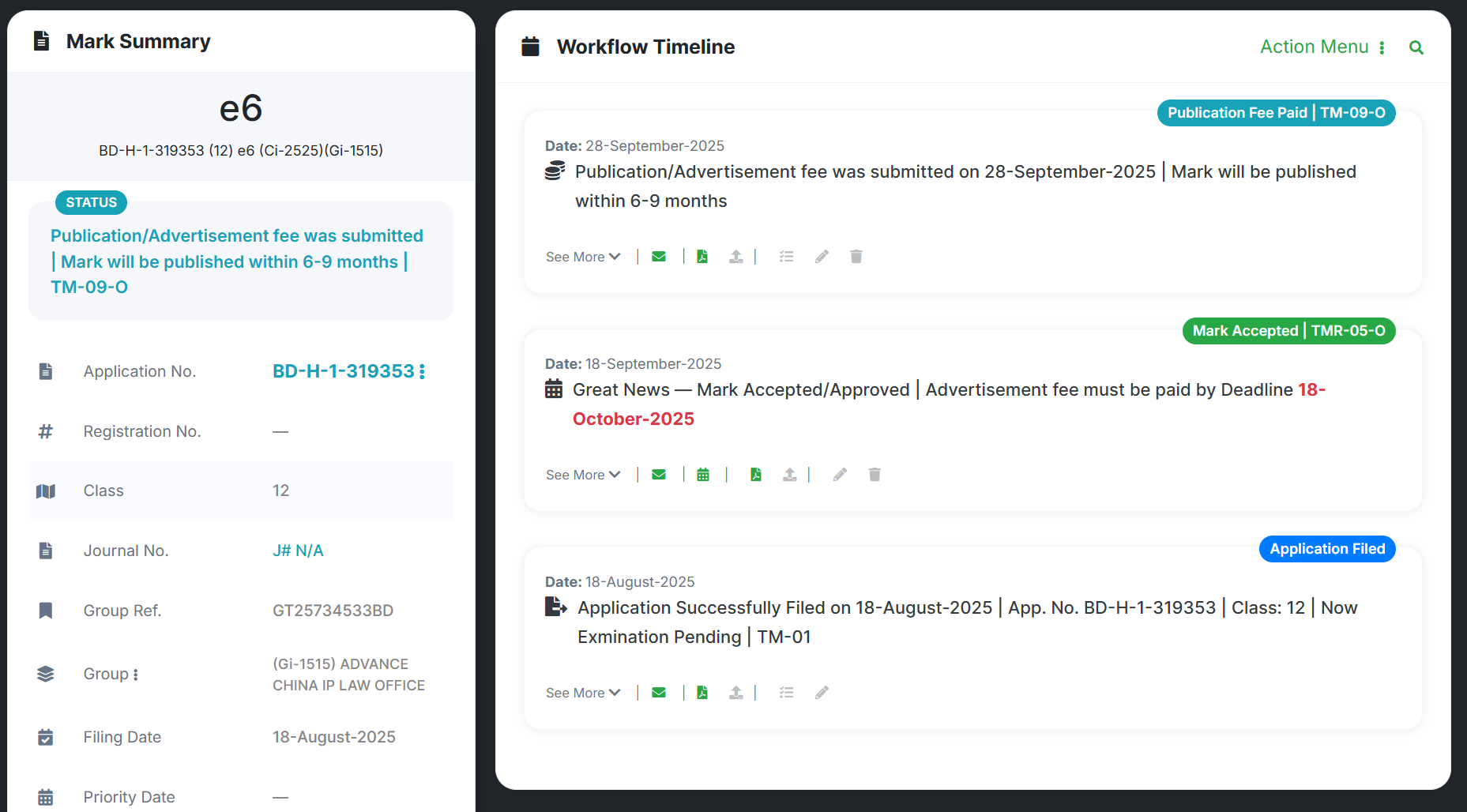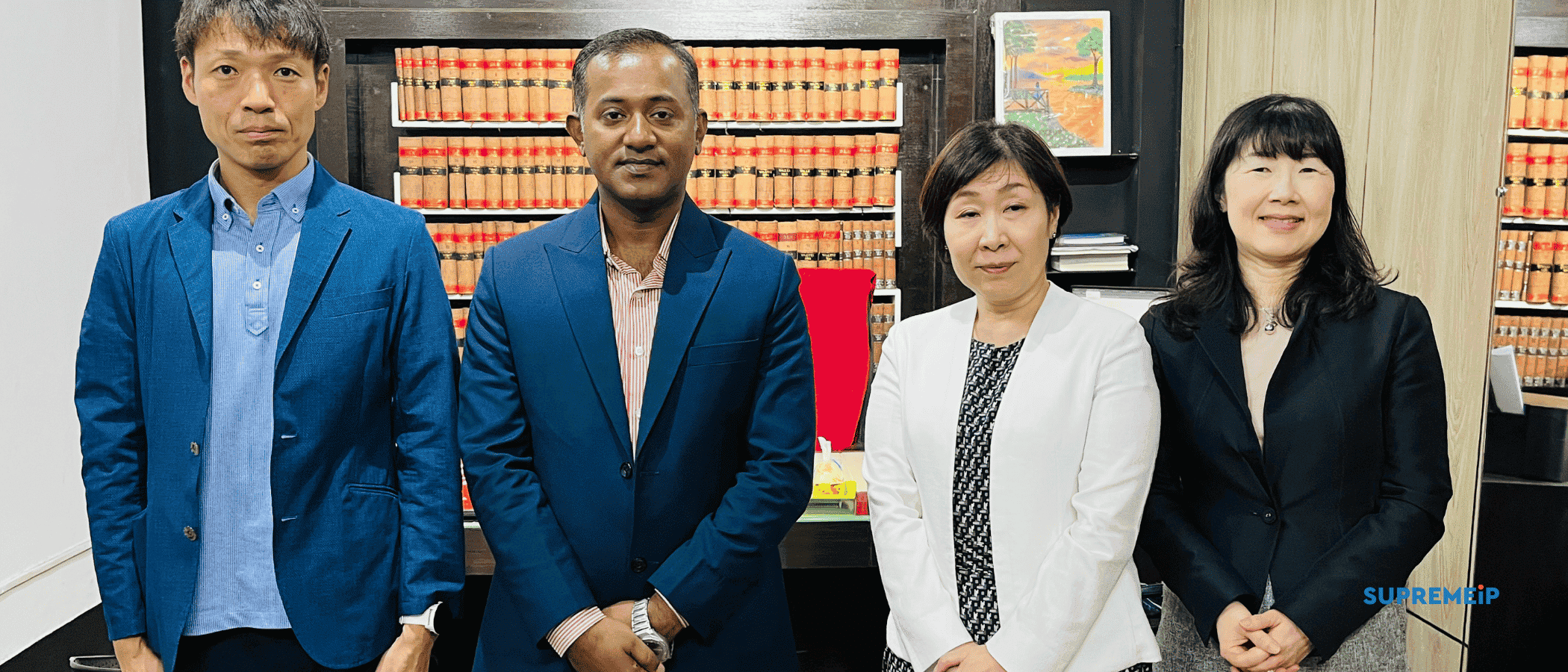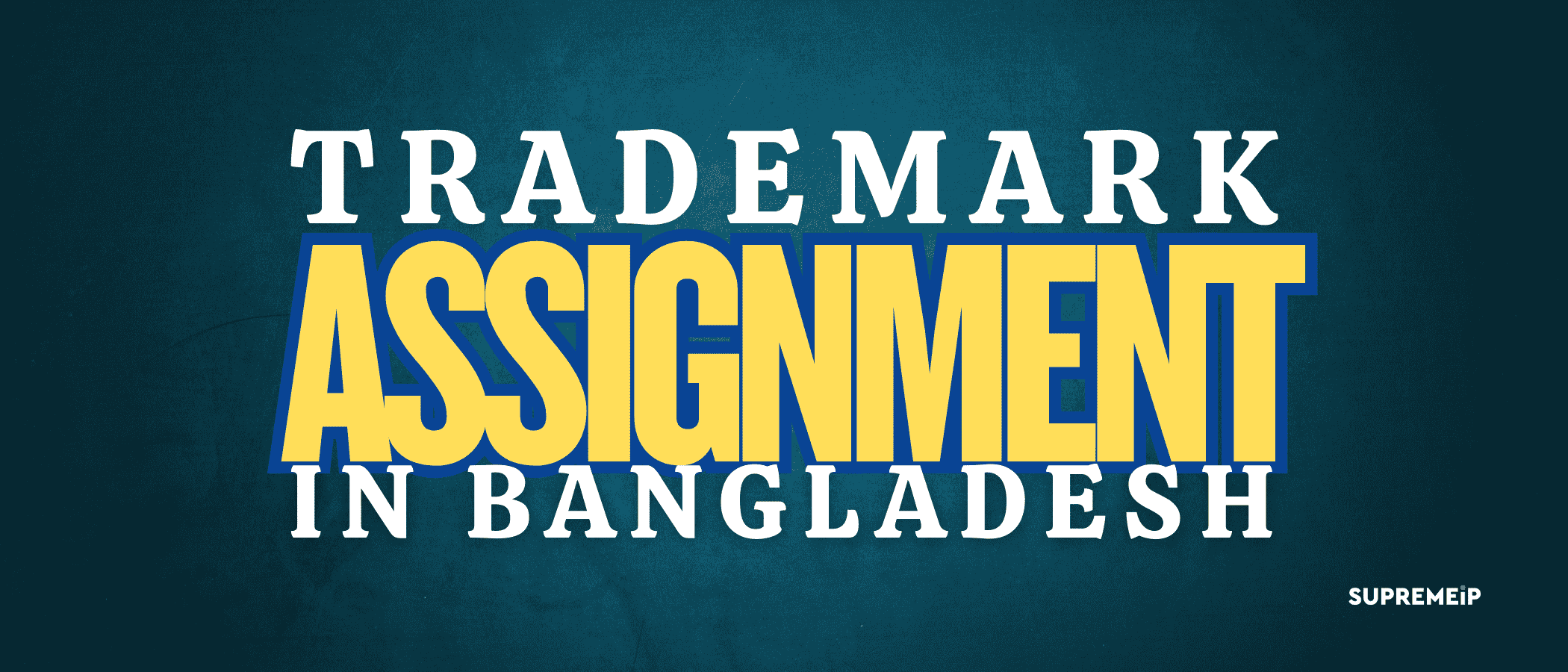
Trademark Assignment in Bangladesh: Complete Legal Guide
In Bangladesh, trademark assignment refers to the legal transfer of ownership of a trademark from one party to another. This process is essential when businesses merge, sell assets, or restructure ownership. A properly executed trademark assignment ensures that the new owner (assignee) has full and enforceable rights to the trademark.
This guide explains what trademark assignment in Bangladesh is, why it matters, the step-by-step process under DPDT, the legal framework, and key FAQs.
◻️ What is Trademark Assignment in Bangladesh?
Trademark assignment is the transfer of rights over a registered or unregistered trademark from one entity (assignor) to another (assignee).
- Complete Assignment: Full ownership rights, including goodwill, are transferred.
- Partial Assignment: Rights are transferred only for certain goods or services.
- With Goodwill: The trademark and its reputation/business value are transferred together.
- Without Goodwill: Only the trademark is transferred, without the business reputation.
◻️ Why Trademark Assignment is Important
- Legal Ownership Transfer: Ensures the assignee has exclusive rights to use and protect the trademark.
- Brand Expansion: Allows businesses to leverage an established brand name.
- Monetization: Assignors can generate revenue by selling their trademark rights.
📝 Step-by-Step Process for Trademark Assignment in Bangladesh
Step 1: Drafting and Legalization/Apostille of Assignment Deed
- The assignor and assignee must sign a Deed of Assignment clearly outlining the transfer terms.
- The deed must be legalized by the Bangladesh Embassy/High Commission in the assignor’s or assignee’s country or apostilled (if the country is a member of the Apostille Convention).
Step 2: Application for Assignment & Examination by DPDT:
The legalized deed of assignment must be submitted through a prescribed method to the DPDT for verification. In the verification process, DPDT may call for a hearing. If further verification is successfully completed, another application must be filed to finalize the grant of the assignment.
Step 3: Publication in Trademark Journal
- The assignment is published in the Trademark Journal.
- Interested parties may file an opposition within 60 days.
Step 4: Confirmation Certificate
- If no opposition is filed (or if opposition fails), DPDT records the assignment in the Trademarks Register.
- The assignee receives a Confirmation Certificate as proof of ownership.
⏱ Timeline: 3 to 12 months, depending on DPDT backlog.
💰 Official Fee: Around USD 150 (subject to change).
📑 Required Documents:
- Legalized Deed of Assignment
- Simple Power of Attorney (POA)
◻️ Legal Framework for Trademark Assignment in Bangladesh
The Trademarks Act, 2009 governs trademark assignment. Key provisions:
- Section 33: Power of the registered proprietor to assign.
- Section 34: Assignment with or without goodwill.
- Section 35: Assignment of unregistered trademarks.
- Sections 36–40: Restrictions, conditions, and procedures.
These provisions ensure transparent transfer of rights and protect both parties.
◻️ Final Thoughts
Trademark assignment is a vital tool for businesses looking to transfer ownership of their intellectual property. In Bangladesh, the process is governed by a well-defined legal framework, but it requires careful planning and execution to ensure a successful transfer.
📊 Summary Table: Trademark Assignment in Bangladesh
| Topic | Details |
|---|---|
| What is it? | Transfer of ownership of a registered or unregistered trademark from one entity (assignor) to another (assignee). |
| Types | Complete or Partial; With Goodwill or Without Goodwill. |
| Governing Law | Trademarks Act, 2009 & Trademarks Rules, 2015. |
| Key Sections | Section 33 (Power to assign); Section 34 (Assignment with/without goodwill); Section 35 (Unregistered marks); Sections 36–40 (Restrictions). |
| Authority | Department of Patents, Designs and Trademarks (DPDT). |
| Process | (1) Draft & Legalize/Apostille the Deed; (2) Submit to DPDT; (3) Examination & Hearing; (4) Publication in Trademark Journal; (5) Confirmation Certificate. |
| Timeline | 3–12 months, depending on opposition and DPDT backlog. |
| Official Fee | Approx. USD 150 (subject to DPDT rules). |
| Documents Required | Legalized/Apostilled Deed of Assignment; Simple Power of Attorney (POA). |
| Publication Requirement | Published in Trademark Journal → 60 days for opposition. |
| Legalization | By Bangladesh Embassy/High Commission or Apostille (if from Hague member country). |
| Outcome | Assignment recorded in Trademarks Register; Confirmation Certificate issued to assignee. |
❓ FAQs on Trademark Assignment in Bangladesh
What is the difference between a trademark assignment and a trademark license?
A trademark assignment is a permanent transfer of ownership rights from the assignor to the assignee. The assignee becomes the new owner.
A trademark license only allows a third party to use the trademark under specific conditions, while ownership remains with the original proprietor.
Can a trademark be partially assigned?
Yes. A trademark can be partially assigned, meaning the assignor may transfer rights for only certain goods or services while retaining others.
Is it mandatory to register a trademark assignment in Bangladesh?
Yes. Registration with the Department of Patents, Designs, and Trademarks (DPDT) is mandatory for the transfer to be legally effective.
What happens if someone opposes the trademark assignment?
If an opposition is filed during the 60-day publication period, DPDT examines the grounds. If valid, the assignment may be rejected; if dismissed, the assignee becomes the new owner.
Can an unregistered trademark be assigned in Bangladesh?
Yes, but under specific conditions. Generally, it must be transferred with the goodwill of the business. Without goodwill, stricter conditions apply.
What documents are required for a trademark assignment in Bangladesh?
- Signed and legalized/apostilled assignment deed
- Proof of official fee payment
- Simple Power of Attorney (POA)
How long does the trademark assignment process take in Bangladesh?
The process usually takes 3 to 12 months, depending on complexity and whether an opposition is filed.
What are the costs involved in trademark assignment?
- Official Fee: Approx. USD 150
- Professional Fee: Varies based on legal services
Can a trademark assignment be revoked?
Once registered, it is binding and cannot be revoked unless fraud, misrepresentation, or breach is proven.
Do I need a lawyer to complete a trademark assignment?
Not mandatory, but strongly recommended. Lawyers ensure compliance, draft strong agreements, and handle oppositions effectively.
What happens if the trademark assignment is not registered?
The transfer will not be legally recognized, meaning the assignee cannot enforce rights, and the assignor may still be liable.
Can a foreign entity be an assignee in Bangladesh?
Yes, foreign entities can own trademarks in Bangladesh, subject to compliance with local law.
What is the role of the Trademark Journal in the assignment process?
It serves as public notice. Interested parties may oppose the assignment within 60 days of publication.
Can a trademark assignment be challenged in court?
Yes. Either party may challenge the assignment in court, although disputes are rare if legal requirements are properly followed.
What is the significance of goodwill in trademark assignment?
Goodwill represents brand reputation and customer loyalty. Assignment with goodwill transfers both; assignment without goodwill is legally restricted.
What happens if the assignor or assignee fails to attend a DPDT hearing?
DPDT may postpone, proceed with documents available, or reject the application if essential clarifications are missing.
Is the legalization or apostille of the assignment deed mandatory?
Yes. The deed must be legalized by the Bangladesh Embassy/High Commission or apostilled (if from a Hague member country).
Can the assignment deed be drafted in a language other than English?
Yes, but it must be accompanied by a notarized English translation for DPDT submission.
What is the significance of the Trademarks Register in assignment?
It is the official record. Once updated, the assignee’s ownership is legally recognized and enforceable.
Can a trademark assignment be canceled after registration?
Yes, but only in cases of fraud, misrepresentation, or legal non-compliance.
What is the role of the assignor after assignment?
The assignor loses all ownership rights and cannot use the mark unless permitted by the assignee.
Can a trademark assignment be done for a pending trademark application?
Yes. Pending applications can be assigned, but DPDT must be notified to update ownership details.
What happens if the assignee fails to pay the agreed consideration?
The assignor may take legal action, seek compensation, or cancel the agreement (depending on the deed’s terms).
Can a trademark assignment cover multiple trademarks?
Yes, provided each trademark is clearly listed in the assignment deed and submitted to DPDT.
What is the difference between assignment with goodwill and without goodwill?
- With Goodwill: Transfers both trademark and brand reputation.
- Without Goodwill: Transfers only the trademark, subject to legal restrictions.
Can a certification trademark be assigned?
Yes, but it requires prior government approval and compliance with special rules.
What is the validity of a Confirmation Certificate issued by DPDT?
It is valid indefinitely as proof of ownership. However, the trademark itself must be renewed every 10 years.
Can a trademark not yet in use be assigned?
Yes, but the assignee must begin use within a reasonable time to avoid cancellation for non-use.
What is the role of the assignee after assignment?
The assignee becomes the lawful owner, responsible for use, enforcement, licensing, and renewals.
Can a trademark subject to a license agreement be assigned?
Yes, but the assignee must notify the licensee and comply with the agreement’s terms.



